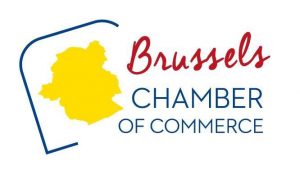The Carbon Border Adjustment Mechanism (CBAM) is the EU’s instrument to set a fair price on carbon emitted when producing carbon-intensive goods, and to encourage cleaner industrial production in non-EU countries.
The Carbon Border Adjustment Mechanism (CBAM) is a component of the European Union’s strategy to mitigate climate change by addressing carbon leakage and promote a greener economy. CBAM is a tariff imposed on imports of certain goods to the EU, which are intensive in carbon emissions during their production processes. It aims at ensuring that the ambitious climate action in Europe does not lead to ‘carbon leakage’, where companies move their production to countries with less stringent emission controls. CBAM ensures that the price of imports reflects their carbon content, thus encouraging cleaner production globally.
What companies need to know about CBAM
CBAM imposes new responsibilities and requirements on companies importing specific goods into the EU. At the moment, the mechanism focuses on iron and steel, cement, aluminium, fertilizers, and electricity. These sectors are critical to the global economy but are also energy-intensive and have been identified as vulnerable to relocation in case when carbon pricing is only applied within the EU. Companies active in these sectors will need to monitor the carbon content of their products, report them and potentially purchase CBAM certificates to cover the carbon price at the EU border. This requires a good understanding of the supply chain and the carbon emissions linked to the production process. Companies will be required to report the greenhouse gas emissions embedded in their imported products and ensure compliance with CBAM regulations and failure in doing so could result in financial penalties. As a result, the importers will have to invest in systems and processes to track and report these emissions. This task may require significant adjustments to current operational practices.
Calculating and reporting under CBAM
Under the Carbon Border Adjustment Mechanism, companies importing into the EU are required to annually report the greenhouse gas emissions associated with their imports. To comply with the CBAM requirements, they need to undertake several steps:
- Initially, they must assess and document the carbon emissions of their products. This task requires staying in contact with suppliers to obtain necessary data. This involves understanding the detailed production process and the energy inputs associated with it.
- Following this, importers are obligated to register with the national authority designated by the Member State of import, providing detailed information about their imports and the associated emissions. The methodology for calculating CBAM charges mirrors the cost that EU producers bear under the EU Emissions Trading System (ETS). To determine the number of certificates needed, importers must report the total emissions embedded in their goods, including both direct emissions from production and indirect emissions, e.g. electricity used in the manufacturing process. This calculation includes carbon price already paid in the country of origin in order to avoid double charging. For each ton of CO2 emissions associated with imported goods, importers will have to purchase CBAM certificates to cover the emissions. Their price will reflect the weekly average auction price of EU ETS allowances. Importers will have to get familiarised with this methodology and may seek guidance or use calculation tools provided by the EU.
- To ensure compliance, companies have to keep records of their emissions reports, certificates purchased, and any other relevant documentation for at least 10 years, as these documents may be subject to audits by EU authorities. Importers also need to stay informed about any changes to CBAM regulations and the list of goods it covers, as these may evolve.
Summarising, compliance with CBAM involves a rigorous process of emissions calculation, reporting, certificate acquisition, and record-keeping. This process not only emphasizes the direct responsibility of importers to engage with global efforts to reduce emissions but also indirectly encourages producers outside the EU to adopt cleaner manufacturing processes.
CBAM timetable
Recognising the challenges companies may face in adapting to the new requirements, the EU has incorporated transition periods and adaptation mechanisms within CBAM. The initial phase, starting from 2023, focuses on reporting requirements. During this period, importers of several high-carbon goods are required to start tracking and reporting the emissions associated with their products but are not yet obligated to pay for the emissions. This phase is important for establishing a baseline of data and ensuring that all parties understand their responsibilities and obligations.
From 2026 onwards, CBAM will enter into its full implementation phase. Then importers will be required to purchase CBAM certificates reflecting the carbon content of their imports, aligning the cost of non-EU goods with those produced within the EU’s carbon pricing framework.
These key dates and phases are designed to provide a smooth transition towards a more sustainable and fair trading system, encouraging global carbon reduction efforts in line with the EU’s climate goals and strategy.
Enterprise Europe Brussels provides advisory services to help SMEs understand and adapt to CBAM.
Source: EU Commission and Enterprise Europe Network Thematic Group Internationalisation





